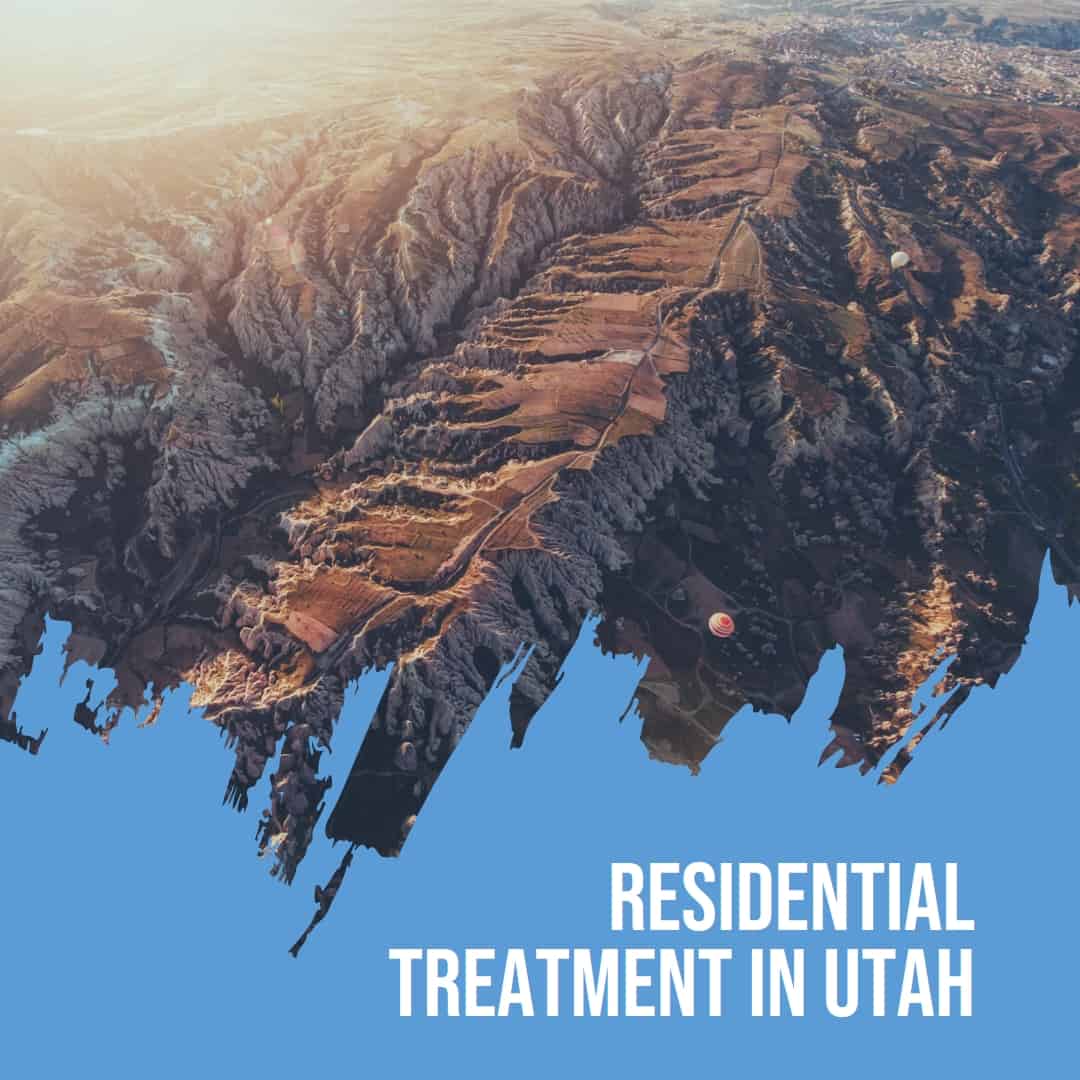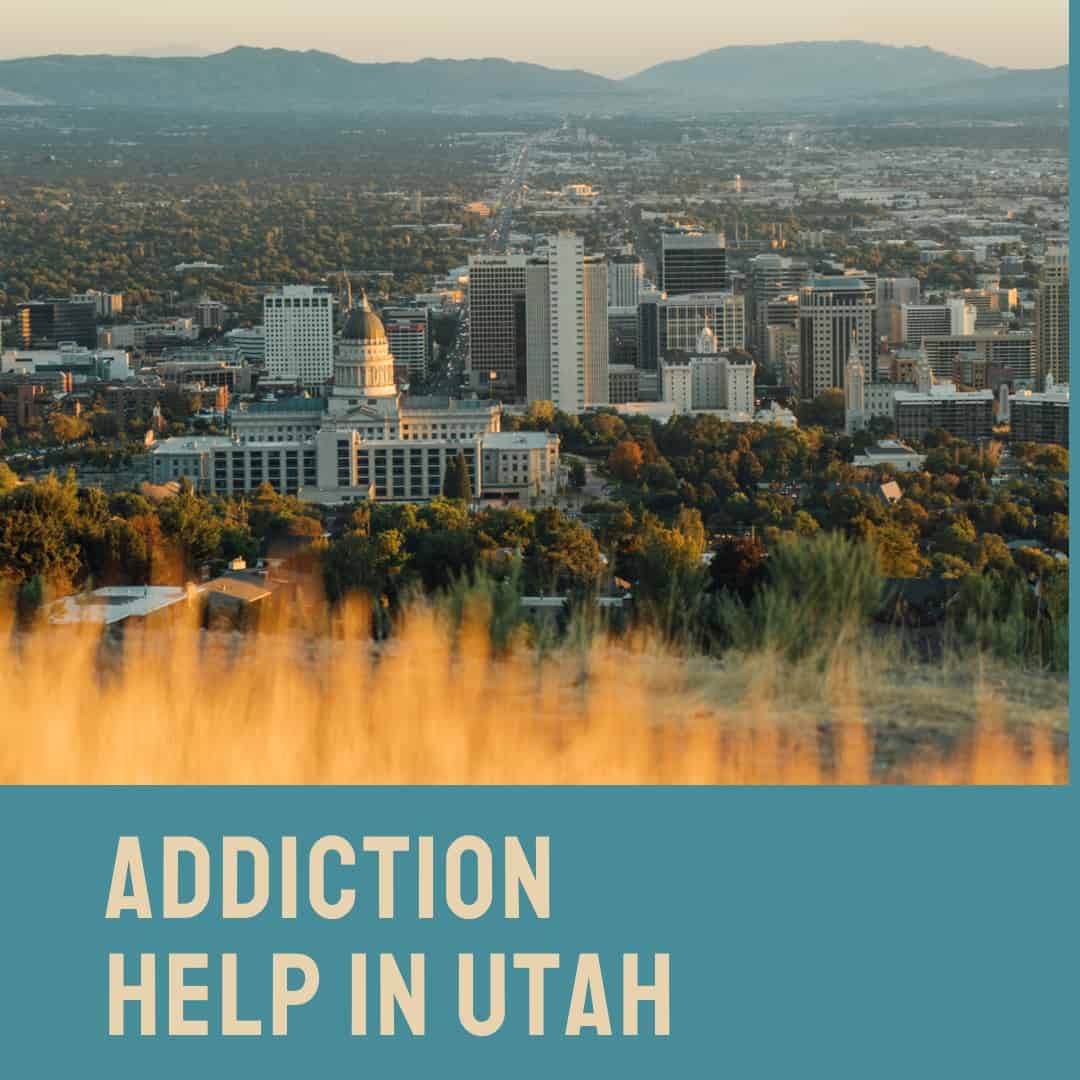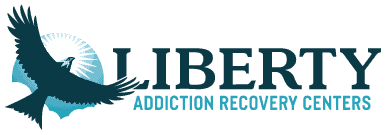Tips for Long-term Recovery
Watching a loved one struggle with addiction is heart-wrenching. You witness their transformation—once vibrant lives now overshadowed by an insatiable dependency. The battle seems to consume the individual and those who care for them deeply. As their world narrows down to the next fix, the addiction tightens its grip, leaving families in search of a lifeline. Amid this turmoil, long-term recovery can feel like a distant dream. In this turmoil, residential treatment in utah offers a beacon of hope, making long-term recovery a reachable goal rather than a distant dream.

But there’s a shining light in this darkness—the compassionate, comprehensive care provided by Liberty’s residential treatment centers in Utah. These sanctuaries offer more than a reprieve; they present a path to lasting liberation from addiction’s chains. In the serene embrace of the Wasatch Mountain foothills, healing begins, and the journey to a renewed life takes root.
The decision to embrace residential treatment is a pivotal step. Liberty addiction recovery centers serve as a gateway to wellness, offering structured, supportive environments where your loved one isn’t just a number but a human being with a story deserving of a new chapter. At the core of this transformative experience lie personalized therapy plans, multidisciplinary professionals, and the belief that everyone deserves a second chance at life.
The Journey to Admission
Deciding to seek professional help for a loved one’s addiction is a testament to strength and love. It comes from a place of deep care and concern, and while it can be a difficult conversation, it is also one laced with hope. Let’s walk through the initial steps that pave the way to recovery in one of the residential treatment centers in Utah.

Discussing Residential Treatment
Empathy and Understanding
Start the conversation from a place of empathy. Your loved one may be feeling vulnerable, scared, or even in denial about their condition. It’s important to listen, to provide a steady presence, and to assure them they are not alone—recovery is a journey you’re ready to embark on together. Opening up a dialogue about the benefits of a Utah residential treatment center can help alleviate some of their fears.
Presenting the Facts
Knowledge is powerful, especially when it is shared gently with care. Talk to your loved one about the proven success rates of Liberty’s program and the professionals ready to guide them through healing. Highlight stories of those who have rebuilt their lives through such programs, emphasizing that they’re not the first to walk this path, nor will they be the last.
Supportive Reassurance
Reassure your loved one that their courage to face their addiction head-on is a profound act of self-love. They’re taking control of their narrative, one day at a time. Mention the continuous support they will receive in residential treatment, both from professionals and peers alike.
Setting Boundaries with Your Loved
One As much as empathy, understanding, and supportive reassurance are cornerstones of encouraging a loved one to consider residential treatment, setting healthy boundaries is equally essential. Boundaries are not just about saying “no” or establishing what you are unwilling to tolerate; they can also be about creating a framework for a supportive environment where your loved one can begin their journey to recovery.

Inside a Residential Treatment Center
Embarking on a residential treatment program is a transformative experience. Let’s explore what life is like inside a center where every day is a step closer to recovery.
A Welcoming Environment
Initial Impressions
Upon arrival, you’ll notice that rehab centers in Utah prioritize creating a warm, welcoming environment. Your loved one is greeted with understanding, compassion, and a sense of belonging from staff members who are steadfast allies on their recovery journey.
Daily Life in Residential Rehab
Structured Yet Personalized Days
Days in residential care are carefully structured to provide stability and a sense of routine. The typical day includes various therapeutic sessions—individual counseling, group meetings, and possibly holistic activities like yoga or meditation.
Despite this structure, programs are personalized; the therapies and activities your loved one participates in are chosen to address their unique needs specifically.
Daily Routines for Residential Treatment in Utah
Recovering from addiction often necessitates a structured routine filled with various therapeutic activities designed to support healing both mentally and physically. Here’s a list of examples of daily routines and activities a patient might experience at an addiction recovery center like Liberty:
1. Morning Meditation and Mindfulness
Starting the day with a session of mindfulness or meditation can set a positive tone. This practice helps patients center their thoughts and prepare for the day with a calm and clear mind.
2. Nutritious Breakfast
A healthy breakfast is essential for maintaining energy levels and supporting overall health. Nutrition plays a crucial role in the recovery process.
3. Group Therapy Sessions
Group therapy is a cornerstone of many recovery programs, providing a safe space for patients to share experiences, offer support, and learn from each other under the guidance of a therapist.
4. Individual Counseling
One-on-one sessions with a counselor allow for personalized support and the development of individualized coping strategies essential for long-term recovery.

5. Educational Workshops
Educational sessions are a time to learn about the science of addiction, relapse prevention techniques, and the skills needed for a sober lifestyle.
6. Recreational Therapy
Utah’s diverse outings, from hiking in the Wasatch Mountains to kayaking on Utah, are integral to Liberty’s approach. These activities foster physical health, stress relief, teamwork, and a sense of achievement. They’re not just pastimes but steps towards a strong, drug-free life.
7. Health and Wellness Activities
Yoga or other holistic practices might be offered to encourage the connection between body and mind, which is crucial for holistic healing.
8. Expressive Therapies
Art, music, or writing therapy can be a profound outlet for self-expression and emotional exploration during recovery.
9. Reflection
A brief period for personal reflection or journaling after lunch helps patients digest their experiences and track their progress.
10. Skill-Building Workshops
These might include sessions on financial planning, job skills, or other life skills that prepare patients for life outside the rehab center.
11. Relapse Prevention Planning
Patients learn to identify triggers and develop personalized strategies to maintain sobriety in the face of challenges.
12. Fellowship and Peer Support
Free time for socializing allows patients to build a support network with others in recovery, fostering a sense of community and shared purpose.
13. Evening Relaxation Techniques
Practices like guided imagery or progressive muscle relaxation in the evening help patients unwind and promote restful sleep.
14. Sober Leisure Activities
Evenings might include movie nights, games, or other sober activities to demonstrate that fun and relaxation are possible without substances.
15. Nightly Recap and Preparation for Tomorrow
Before bed, patients review the day’s events and set goals for the next day, reinforcing the daily routine and maintaining a forward-focused mindset.
At Liberty Addiction Recovery Centers, these activities are an integral part of our commitment to providing evidence-based treatments that foster long-lasting recovery. Our multifaceted approach ensures that every individual can engage in activities and routines that resonate with them and support their journey toward a thriving life.

The Pillars of Long-Term Recovery
A life unburdened by addiction doesn’t stop at detoxification or the completion of a residential program. Long-term recovery is built on multiple pillars that support your loved one as they reintegrate into society with newfound strength and resolve. Let’s delve into the components that fortify this crucial phase of the recovery journey.
The Holistic Approach
Treating the Whole Person
In Liberty’s Utah residential treatment centers, the approach to recovery encompasses all aspects of an individual’s life. It’s not just about overcoming physical dependency; it’s about addressing the emotional wounds, psychological barriers, and social factors that contribute to addictive behaviors. This comprehensive method ensures that every facet of well-being is nurtured.
Developing a New Lifestyle
Recovery is the perfect time to adopt healthier lifestyle choices. Facilities often provide resources and activities that promote physical well-being, such as nutritional counseling and exercise programs. Empowering your loved one to take charge of their health is a gift that keeps on giving.
Building Life Skills
Beyond Coping Strategies
The aim is not just to learn how to avoid triggers or manage cravings—important as these skills are—but also to develop a suite of life skills that can be applied to all areas of life. This can include financial planning, stress management, or even education and vocational training, equipping your loved one with the tools to build a fulfilling and self-sustaining life.
Education and Upskilling Opportunities
Residential drug rehabs in Utah often offer educational programs or collaboration with local educational institutions to help individuals pursue their passions or explore new career paths. Encouraging personal development is a cornerstone of successful long-term recovery.
Community and Peer Support
The Power of Shared Experiences
Group therapy sessions and peer-led activities allow individuals to connect with others on similar paths. These connections can evolve into a strong support network, creating a sense of community that lasts well beyond the time spent at the treatment center.
Continued Connection Post-Treatment
Even after the residential program concludes, the support should not end. Many centers offer alumni groups or follow-up services to keep your loved one connected and supported as they navigate their new life.
In the next section, we’ll address the vital transition from the supportive environment of a residential treatment entity to the everyday reality outside its doors, outlining strategies to maintain the gains made during treatment and to prevent relapse. This phase is when the true test begins, but with the right preparation and ongoing support, your loved one can stand firm in their recovery journey.
Transitioning from Residential to Everyday Life
The return to daily life outside the protective bubble of a residential treatment center can be both exhilarating and intimidating. It’s a crucial period where the skills and resilience fostered during treatment are implemented. A carefully planned transition can make all the difference in cementing long-term recovery.
Embracing the Challenges of the Outside World
Preparation is Key
Before discharge from residential care, your loved one will work closely with their treatment team to develop a thorough aftercare plan. This plan addresses potential challenges and outlines a clear strategy for applying coping mechanisms in real-world situations.
Maintaining a Support System
Encourage your loved one to maintain regular contact with their support network, including therapists and peers from the treatment center. Outpatient services, therapy sessions, and support group meetings are invaluable for ongoing guidance and encouragement.
Aftercare and Ongoing Support
Continuous Care Options
Liberty’s rehab centers in Utah offer aftercare programs designed to support graduates in their continued recovery. These might include alumni activities, support groups, sober living arrangements, and graduate AA meetings. The door to assistance remains open, reassuring that support is there whenever needed.
A Lifelong Journey
Recovery does not have a finish line. It’s an enduring process of growth and adaptation. By embracing the lifestyle changes and coping strategies learned during residential treatment, your loved one can confidently navigate the ebbs and flows of life.
Staying True to the Recovery Path
Remain Vigilant Against Relapse
Recognize the signs of potential relapse and know what steps to take if challenges arise. Staying connected with the recovery community can provide quick access to help if needed.
Celebrating Milestones
Celebrate every achievement, no matter how small it may seem. Recognize the hard work your loved one has put into their recovery and commemorate their progress.
Encouraging Passion and Purpose
Encourage your loved one to discover new interests or reignite old passions. Engaging in meaningful activities helps to build a life that is not only sober but also satisfying and joyous.
Transitioning from a residential treatment environment to everyday life is a pivotal time. Still, with the right support and resources, it can be a launching pad into a future filled with hope and fulfillment. Remember, if you or a loved one have questions about this critical phase or need further guidance, the team at Liberty Addiction Recovery is here to help. Learn more about what to ask when calling Utah rehab facilities, ensuring you have all the information needed to support a successful transition.
Conclusion
Embarking on the recovery journey through a residential treatment program is a courageous and profoundly hopeful step towards a new chapter in life. In the serene, majestic environment that Utah offers, residential treatment centers stand as pillars of hope for individuals and their families affected by the sometimes overwhelming shadow of addiction.
The steps to long-term recovery, while varied and challenging, are laid out with clarity and compassion at the residential treatment centers in Utah. For those searching for a means to support their loved ones through this transformation, the answers and assistance you need are at hand. Liberty works with many popular Utah insurance like Select Health and Aetna. We invite you to explore more about our approach and our commitment to lasting recovery by visiting Liberty Addiction Recovery Centers.
FAQ: Residential Treatment Centers in Utah
- What can I expect from a residential treatment center in Utah?
- In Utah’s residential treatment centers, expect a nurturing environment combining structured therapeutic programs and personalized care. With a focus on holistic healing, these centers offer evidence-based treatments such as Cognitive Behavioral Therapy, group sessions, and various innovative therapies tailored to individual needs. Set amidst the natural beauty of Utah, these centers provide the perfect backdrop for healing and self-discovery.
- How do I know if residential treatment is the right choice for my loved one?
- Residential treatment may be the right choice if your loved ones’ addiction is interfering with their job, studies, or social life. It’s ideal for those who need intensive support and have perhaps struggled with outpatient treatments in the past. Consider discussing the specific needs of your loved one with a professional to determine if a residential program in Utah would be beneficial.
- What types of therapies are offered in residential treatment programs in Utah?
- Therapies in residential treatment programs include individual counseling, group therapy, family sessions, and various holistic approaches such as art therapy, music therapy, and outdoor recreation. Programs are customized to the needs of each individual, ensuring a comprehensive approach to recovery.
- How long does a stay at a residential treatment center typically last?
- The duration of a stay at a residential treatment center can vary depending on the needs of the individual and the specifics of their situation. Generally, programs can last from 30 days to 60 days. It’s best to consult with the treatment center about the recommended length of stay for your loved one.
- Are aftercare programs available once my loved one completes a residential treatment program?
- Yes, Liberty’s residential treatment centers in Utah offer aftercare programs to provide continued support after completion of the initial program. Aftercare may include outpatient therapy, support groups, booster sessions, or sober living arrangements. These resources are crucial for managing the transition back into daily life and maintaining the progress achieved during treatment.







1 Comment